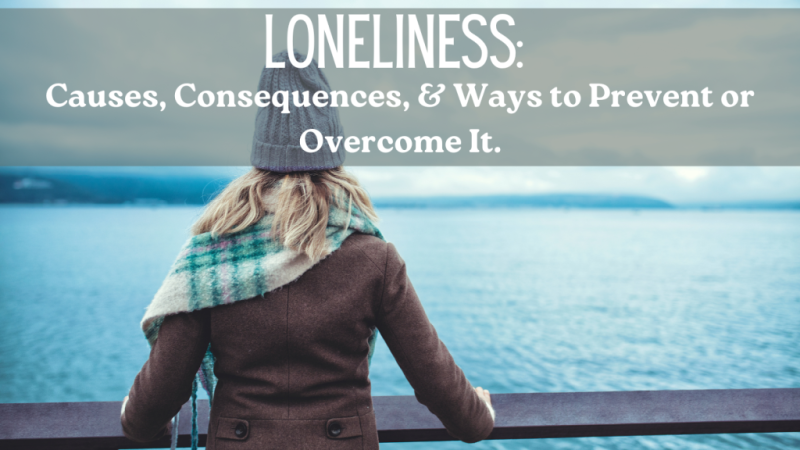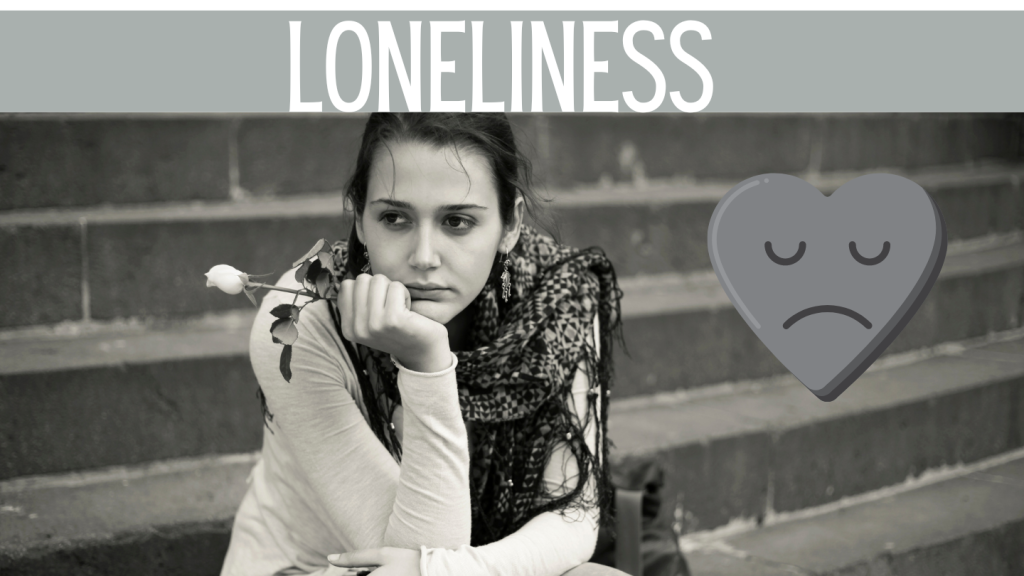In this post, we will discuss Loneliness, its causes, and health consequences. While loneliness is a universal emotion that we all feel from time to time, we rarely talk about it. Many of us are ashamed to admit to feeling lonely, which is also the reason we don’t do anything about it.
This is despite the fact that loneliness is a prevalent problem for most adults, with a wealth of studies associating it with multiple chronic health conditions.
A systematic review and analysis of loneliness in 113 countries found that a substantial proportion of the population in many nations experiences problematic levels of loneliness.
A 2018 study also suggested that loneliness affects one-third of the population in industrialized countries, with one in 12 individuals experiencing it at a problematic level.
Loneliness may stem from general discontentment in life and is associated with lower self-esteem. Talking to a mental health professional can help, as well as trying certain types of therapy like cognitive behavioral therapy or therapy for self-esteem.
Let us dive a little deeper into the topic of loneliness, including its causes, health consequences, and a few potential ways to cope with or overcome it.

What Is Loneliness?
According to the American Psychological Association (APA), loneliness is an affective and cognitive discomfort or uneasiness of being/perceiving oneself to be alone.
This is an emotional distress that comes from unmet expectations of the relationships and social contact we inherently need or wish to have. Loneliness may arise from being alone or the perception/feeling that you are alone.
Loneliness, however, is not always synonymous with being alone, as you can choose to be alone and live happily and peacefully without craving for social connection.
In addition, you can feel alone and lonely even though you’re in a crowd full of people, particularly when you aren’t connecting or feel out of place with those around you. Anxiety may even try to sneak in.
Loneliness is also a subjective feeling that can vary in duration and intensity. Sometimes, it can be subtle, brief, and managed easily, but in other cases, it can be severe or chronic and you feel like you cannot get past it.
The latter often leads to physical symptoms such as fatigue, muscle weakness, brain fog, and low self-esteem, and may also need counseling or therapy for self-esteem or loneliness.
What Are The Causes Of Loneliness?
A number of factors can cause you to experience loneliness and this can vary from person to person. In most cases, there is no single cause, but rather a combination of things that may stem from changes in your circumstances or the quality of social connections.
The reasons for loneliness are also internal or external. The former relates to your perception of yourself and the world, while the latter relates to location or physical proximity and how others around you act or behave. Some of these factors may be easy to manage or overcome, but others may feel overwhelming or out of your control.
Internal factors can include
- Being introverted
- Shyness
- Low self-esteem or being critical of yourself
- Lack or poor communication skills
- Social withdrawal (may be due to certain conditions such as anxiety or depression)
External factors can include
- Moving to a new area or country
- Living in a rural or faraway location from others
- Starting a new job or at a new school
- Bereavement or loss of a loved one or betrayal trauma
- Divorce, break-up, or separation
- Mobility issue or physical disability
- Too much time on social media
- Social exclusion, which can be due to disability, age, race, gender, or sexual orientation
The causes of loneliness can also differ depending on the age of the person, according to a study from the University of Edinburgh.
Older adults who live alone, for instance, may feel lonely more frequently, while middle-aged ones are less likely to report feeling lonely due to living alone. Some younger people, on the other hand, may struggle more with introversion or shyness which can lead to isolation.

What Are The Health Consequences Of Loneliness?
Loneliness itself is not a mental health issue, but mental health problems such as social anxiety and depression can lead to loneliness or increase your risk of feeling lonely.
It can also affect both your physical and mental health, as well as contribute to increased stress and the onset of health and psychiatric disorders.
Research also suggested that loneliness can result in fight-or-flight stress signaling. Feeling lonely or isolated can sometimes lead to digestive issues, muscle tension, and chest pains.
It can also compromise your sleep quality, which can result in a number of health problems. Poor or lack of sleep, for example, can lead to fatigue, lack of focus, and irritability.
Intense feelings of loneliness and feeling like you have no one to turn to might also cause you to engage in risky behaviors.
There is a connection between substance abuse and loneliness, as some people turn to alcohol or drugs to numb the pain. When you feel alone, isolated, and rejected, you may start to have a distorted view of yourself, others, and the world, then slide into unhealthy habits.
Studies have associated loneliness and social isolation with several health risks. Chronic loneliness, which refers to feeling lonely over a long period, can negatively affect the quality of life and lead to more serious health issues if left untreated. Long-term risks and health consequences can include:
- Depression
- Cognitive decline
- High blood pressure
- Heart disease
- Weakened immune system
- Obesity
- Alzheimer’s disease
How To Cope With Or Overcome Loneliness
One of the best ways you can do to reduce stress and induce positive feelings is to have an in-person interaction. This can help you stay connected and avoid isolation, as well as maintain your mental health.
Nothing beats face-to-face communication, but as this is not always possible, you can still keep in touch with people in other ways.
- Use video chats or videoconferencing.
- Call friends on the phone or set a day/time each week to catch up.
- Join online tutorials or webcasts.
- Write an email or a letter (to a loved one or yourself).
- Journal

Here are a few other things that can help you prevent or cope with loneliness:
- Take a new hobby or join a club that interests you – You can consider book clubs, crafting communities, language schools, or a fitness class. Engage in activities that match your interest to meet new people that you can connect with.
- Volunteer – This can add meaning to life or give you a sense of purpose. It is also a great way to meet others who support a cause that matters to you.
- Get outside – Set aside time every day to go outdoors. This is particularly important if you work from home. You can try walking around your neighborhood, heading out to a coffee shop or restaurant, or trying outdoor hobbies. This can improve how you feel and increase your chances of meeting new people.
- Go easy on yourself – There are several ways to do this. One is to talk to yourself in a compassionate way or how you would talk to a friend. Another one is giving yourself some time to adjust during major life changes such as leaving or starting a job or moving to a new school. It is also important to keep in mind that your inner critical voice doesn’t always reflect reality.
- Join support groups – This will allow you to make new connections and get help with an overwhelming situation you are facing. It will give you the opportunity to share feelings, experiences, and coping strategies to feel less lonely or isolated. Support groups can also help you gain a sense of hope or empowerment.
- Get mental help – Talking to a mental health professional can help you feel supported and connected during times of loneliness and isolation. A therapist or a counselor will listen to you and take note of your emotions, so both of you can explore your loneliness, and how it affects your well-being, and teach you ways to deal with it.
Professional mental help can involve one type of therapy or several approaches depending on your needs. If your loneliness, for instance, stems from low self-esteem and self-worth, you can benefit from cognitive therapy or therapy for self-esteem. It can also help you deal with other mental health problems, such as depression and social anxiety.
If you find loneliness taking over you, don’t hesitate to reach out. It is also a good idea to remind yourself that loneliness is transient and not always there to stay. The right support and strategies can help you overcome it and start your journey toward creating a healthy and satisfying life.
Do you suffer from loneliness? What are some ways you are coping with this issue? Leave me a comment below!